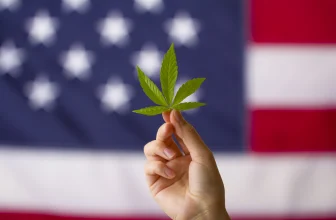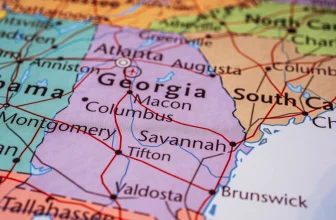
On Thursday, Biden’s Drug Czar put forth a major proposal to change the federal government’s drug scheduling. The ultimate goal of this change is to make Schedule I controlled substances — chiefly marijuana and psychedelics — available to research for medical purposes.
Congressional leaders received the letter from The White House Office of National Drug Control Policy (ONDCP). The letter mirrored a plan published on the ONDCP’s website, which aimed to make the process of registering for Schedule I substances as accessible to scientists as that of Schedule II substances, which are less restrictive.
The Motivation Behind the Move
The Biden Administration has cited multiple reasons for this move. Their overarching goal of exploring options to weaken the supply of illegal fentanyl imitations is certainly at play here. The administration also cites the protection of civil rights, as well as the removal of barriers to access for scientists attempting to research Schedule I substances.
The existing registration system has long been the target of pointed criticism from health experts. Schedule I substances like marijuana have shown significant potential for therapeutic use, but the ability to research has been hampered by a lengthy, burdensome registration process.
According to the ONDCP, the goal is to establish a “simplified process that would align research registration for all Schedule I substances, including FRS, more closely with the research registration process for Schedule II substances.” The press release also noted that the “Biden-Harris Administration strongly supports expanding the research of Schedule I substances to help advance evidence-based public policy.”
The Current Marijuana Research Registration System
The existing process to research either Schedule I or II controlled substances requires applicants to put forth a general proposal for research. This proposal must include how the substances will be stored and kept secure, as well as the researchers’ qualifications to perform the study.
However, the application to study Schedule I controlled substances includes an additional requirement. The Secretary of Health and Human Services must independently assess each applicant’s competency and qualifications and must also assess the research protocol’s merits.
This extra step usually amounts to additional paperwork. For advocates of Schedule I and II alignment, this puts an unnecessary burden on researching drugs like marijuana. Yet opponents counter that the extra step is not particularly restrictive and that aligning Schedule I and II may not have the desired effect.
An Overall Shift Toward Easier Marijuana Research
Earlier this week, we reported on the DEA’s bid to massively increase marijuana and psilocybin production for research and the potential development of new, FDA-approved medications.
The DEA stated that it firmly stands behind new research of Schedule I controlled substances and that the updated production quota is intended to meet the need for new drug development research. Their official statement points out the importance of researching marijuana in particular.
To help achieve their new production goals, the DEA made a surprising move of ending the University of Mississippi’s monopoly on producing federally authorized cannabis. The university has enjoyed this honor for around 50 years but is now sharing production activities with a range of other approved growers around the country.
The Question of Rescheduling
The ONDCP’s goal is to make researching Schedule I substances as easy as researching Schedule II substances — but this is still an inadequate milestone for many advocates.
Many argue that marijuana and psilocybin do not belong in the strictest category of drugs to begin with. Now that there is a respectable body of research indicating their therapeutic value, it seems particularly outdated to continue placing them in the same class as drugs like heroin, LSD, and ecstasy.
In April of this year, the White House announced that meeting the president’s goal of releasing federal inmates convicted of marijuana charges would begin with a rescheduling of cannabis.
Overall, the question of rescheduling all ties into an overall shift toward change. Both advocates and critics of the White House’s approach acknowledge that we should not expect different results by doing the same thing as in the past — true change will be needed to address the systemic inequalities present in marijuana enforcement.
While this shift will not lead directly to that change, it is yet another example of federal movement on a long-stagnant issue.
[ Read More: Recent Johns Hopkins Study Reveals Psychedelic Treatment with Psilocybin Relieves Major Depression]






